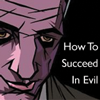I recently wrote an extraordinarily brief summary of why i think job interviews are uniformly awful. I do computer programming, but it applies elsewhere. Here it is.
Programming is not a real time task or performance art. It's not a closed book test. Expect any such tests in interviews to fail. Worse, expect to miss great candidates because you've pissed them off, or they appeared less qualified.
Programmers need to have unusual skills. They often don't need to have common skills - such as being able to conduct themselves in an interview and sell themselves. Focus on what skills you need, and be prepared to accept that skills you don't need suck. Failure to follow this rule will prevent you from hiring the best talent.
Non technical managers have no way to evaluate technical candidates. IMO, they shouldn't be invited to interviews. In my experience, non-technical managers also have no way to evaluate productivity after hire. You can't do it on hours worked. And the non-technical manager doesn't have a clue how long a task should take, nor can they recognize quality (or lack of it).
The right way to hire a competent technical person is to have a competent technical person interview them. And that person much conduct the Turing Test. The Turing Test was devised as a test of artificial intelligence. The idea is that you can't define or describe intelligence, but if you are intelligent, you can recognize it in a machine. It sounds silly, but it's the best we have. And it works. Where i went to school (an engineering school) only one in four entering freshmen (all totally brilliant) graduated. And there didn't seem to be any way to tell who would make it. But of the 22 guys i hung out with starting in my freshman year, one transferred to another school and got his degree there, one had to do a summer session to get his degree, and one failed to graduate when his financial aid ran out. Four went on to get masters, and two got PhDs. And it's starting to become clear that some companies end up with uniformly high quality staff, and others don't. It's the conversation that does it.
Here's a sample poor conversation:
Q: Why did you leave your last position?
A: I was a contractor. The contract ended.
Q: How about before that?
A: I've been a contractor for twenty years. But in 1991, the company I was working for went out of business. It wasn't my fault.
(At this point I'm already thinking about my next interview. The question shouldn't have been why i had a run of short contracts, but rather why i worked one for six years. They assume it's due to not getting along with someone - typically a manager. But i could already tell that working for this guy wasn't going to be easy.)
When i was at Chrysler (and they were attempting to reduce staff), they sent out email with a list of questions you might be asked on your next interview, you know, to help you prepare. It was pages and pages of questions that you should never ask as an interviewer.
I have lots more on this topic. Perhaps i'll write a book.
 But the best is yet to come. You really have to check out SucceedInEvil.com. Patrick's novel is fabulous. I'm getting it daily at podiobooks. You can get it slower if you want.
But the best is yet to come. You really have to check out SucceedInEvil.com. Patrick's novel is fabulous. I'm getting it daily at podiobooks. You can get it slower if you want.


